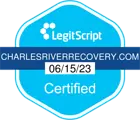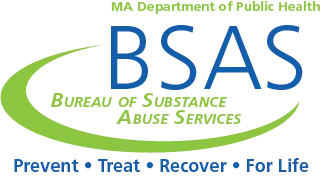Building a Strong Support System: Essential Guidance for Detox and Recovery
A strong support system plays a very important role in what is often the first step of a sobriety journey, the detox. Help from loved ones and health professionals is a crucial component of the beginning of recovery.
Are you hoping to detox from drugs and/or alcohol? Or perhaps you have a loved one who needs a detox?
If you want to know more about support during detox, keep reading.
In this article, we will discuss what a detox is and the different roles support may play during this time.
What Is Alcohol Detox?
A detox is an abrupt stop in drinking, and your body is flushed of the alcohol. A detox is often the very first step on your sobriety journey. A medical professional will be your guide and first support during this time when withdrawal symptoms set in.
When you become dependent on alcohol, your brain stops making certain chemicals and relies on what it gets from alcohol instead. Doing this repetitively for months and years can create a dependency that brings on a strong set of withdrawal symptoms when you try going without.
Some less severe symptoms of withdrawal may be:
- Anxiety
- Sweats
- Nausea
- Insomnia
- Headaches
A more severe range of symptoms may be:
- Tremors
- Seizures
- Extreme hallucinations
- Disorientation
- Delirium Tremens (rare)
You can either detox at home or in a treatment center. A medical professional will guide you in deciding which choice is best for you. If you choose inpatient treatment, different medications are available to help manage your withdrawal symptoms and prevent severe side effects.
Some of the most common medications are:
- Benzodiazepines help to calm your central nervous system. It can also effectively treat insomnia, anxiety, and muscle spasms.
- Naltrexone/XR-Naltrexone helps reduce the intensity of alcohol cravings.
- Acamprosate is prescribed to help your brain function normally again after long periods of alcohol abuse. It also helps to lessen the strength of alcohol cravings.
- Disulfiram can help one remain abstinent by creating unpleasant side effects like nausea and headaches if alcohol is consumed while using it. This is done in hopes to deter the user from drinking more alcohol while taking the medication.
What Other Support Is Available?
Different options for additional support during your detox including behavior treatments, mutual support groups, and trusted sober family and friends. There is no one-size-fit-all treatment, and understanding what options are out there will help you get started.
Behavioral Treatments
Also referred to as counseling, this treatment involves support from a health professional who guides you in changing the behavior that led to the alcohol or substance use.
This treatment can teach you how to cope with your triggers to drink or use and develop new skills that will aid you on your sobriety journey. They can also help you set and reach reasonable goals, building confidence and self-efficacy in yourself.
Different kinds of behavioral treatments are:
- Cognitive-Behavioral Therapy (CBT). This treatment can happen one on one or in a group setting. The goal is to change the individual’s thought process which leads to negative behavior. Developing new skills that can aid you in avoiding your triggers can be a useful tool.
- Motivational Enhancement Therapy. This treatment helps build one’s motivation to quit drinking. It also includes preparing a plan to make changes in an individual’s drinking habits and developing confidence and the skills necessary to stick to said plan.
- Marital and Family Counseling. Alcohol abuse often damages family and spouse relations, so seeking support that helps mend those riffs may be a great help in one’s recovery.
- Brief Interventions. This treatment is short counseling sessions, conducted one-on-one or in a small group. The counselor will give feedback, pointing out the risks of drinking habits and behaviors. They will also help the individual set goals and make plans.
Mutual Support Groups
12-step programs like Alcoholics Anonymous (AA) or Narcotics Anonymous (NA), SMART Recovery, Celebrate Recovery, Dharma Recovery, etc., offer support from other peers who are trying to stop or cut back their drinking habits. Coupled with treatment from health professionals, this can be another excellent source of support for an individual in recovery.
Family and Friends
Evidenced by clinical experience, healthcare professionals believe that support from family and loved ones are an integral part of recovery. Trusted individuals who are close to the one seeking treatment can offer help in a personal way that others can not.
Advice For Family and Friends
Choosing to be there for our loved ones when they are going through detox can be very stressful. You may feel unsure of what to do to best support them. You may even need your own sources of support during this time.
While your support is valuable, you must remember that you cannot manage someone else’s illness for them. This journey will ultimately be their own. Here are some things you can do:
- Help them manage stress. Try basic techniques like massage, movement through exercise, and talking through their feelings.
- Keep them busy. During detox, distractions that help the person momentarily forget what they are feeling can be very helpful. Watching movies, reading magazines or books, and other leisurely activities can provide a welcome respite.
- Make sure no drugs or alcohol is in the house. It is important for the person going through detox should not to be tempted. Also, discourage anyone who is still using alcohol or other drugs from visiting. Any and all triggers should be carefully avoided at this time.
- Offer positive reinforcement for their efforts. This is not an easy journey. There will be setbacks, and you may take the good times for granted. Pay attention to when they are trying their best, and making progress. Praise them for the steps they’ve taken, and how far they’ve come.
Support After Detox
It’s imperative to have more support prepared and in place after a detox has taken place. Doing so can aid in relapse prevention and get the individual’s life back on track.
Other support services could be:
- Outpatient programs
- Outreach support
- Residential rehabilitation
- Welfare services
- Employment, education, and training services
References:
National Institute on Alcohol Abuse and Alcoholism (2014). Treatment for Alcohol Problems: Finding and Getting Help. Niaa.nih.gov. Retrieved March 27, 2023, from https://www.niaaa.nih.gov/publications/brochures-and-fact-sheets/treatment-alcohol-problems-finding-and-getting-help
Alcohol and Drug Foundation (2022, November 30). Home-based withdrawal. Adf.org.au. Retrieved March 27, 2023, from https://adf.org.au/reducing-risk/withdrawal/home-based/
Alcohol Rehab Guide (2022, April 26). Alcohol Detox. Alcoholrehabguide.org. Retrieved March 27, 2023, from https://www.alcoholrehabguide.org/treatment/alcohol-detox/
National Library of Medicine (2018, December 3). Home Detox – supporting patients to overcome alcohol addiction. Ncbi.nlm.nih.gov. Retrieved March 27, 2023, from https://www.ncbi.nlm.nih.gov/pmc/articles/PMC6299173/






